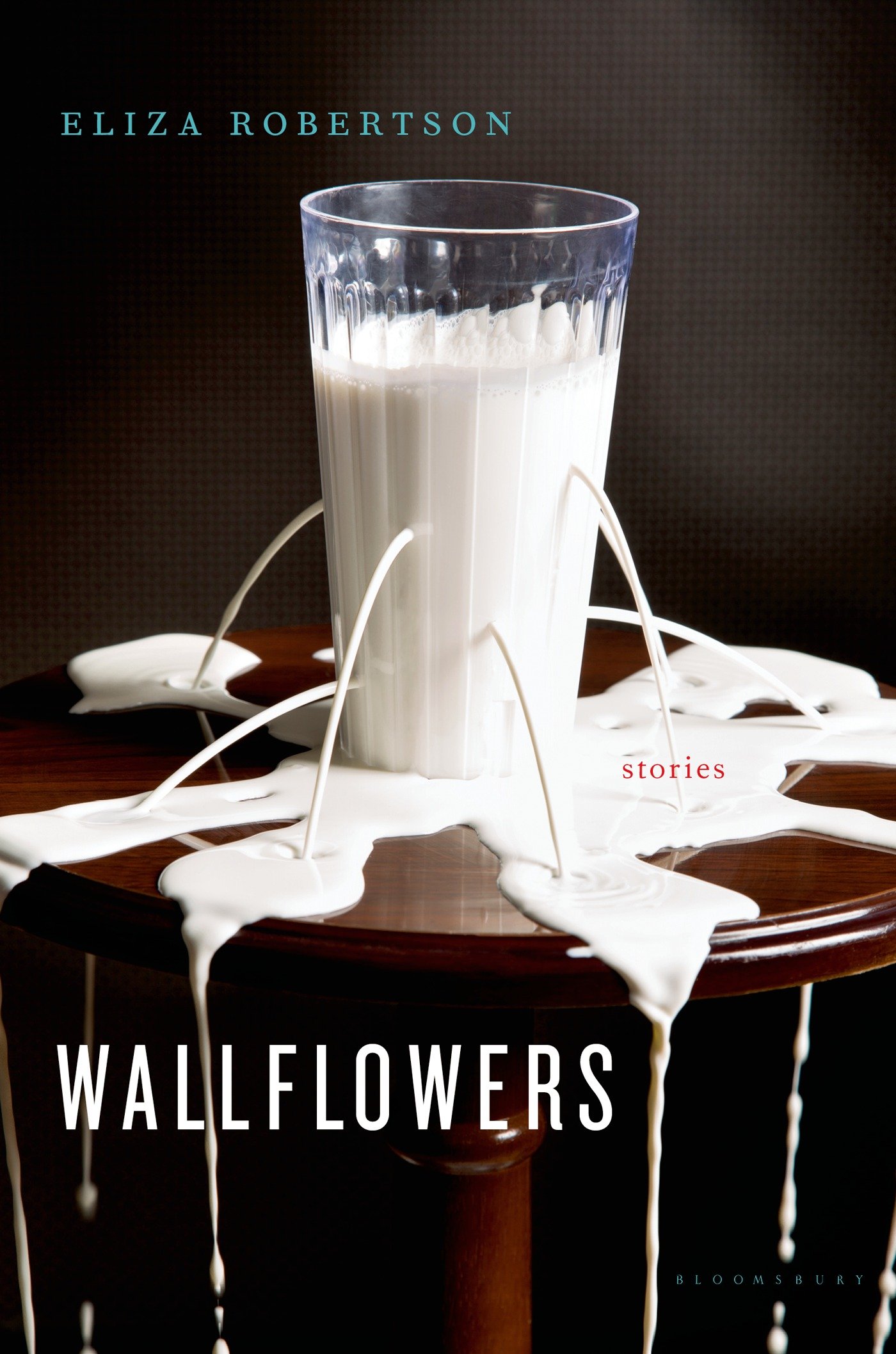Eliza Robertson was born in Vancouver and grew up on Vancouver Island. Her stories have been shortlisted for the Journey Prize and CBC Short Story Prize. In 2013, she won the Commonwealth Short Story Prize.
Her first collection of stories, Wallflowers, came out with Hamish Hamilton Canada and Bloomsbury this year. She lives in England.
GUTS contributor Emma Morgan-Thorp spoke to Robertson about home and being away from home, how to view the derided terms “ChickLit” and “CanLit,” and some authors readers should get excited about (Lorrie Moore! Lorrie Moore!).
What do you think of the designation “CanLit?” How comfortably does your work fit this category?
I think “CanLit” gets a bad rap. It makes me think of ice fishing. There are great stories with ice fishing, but I am from Victoria, where water does not freeze. What I am saying is maybe that imagery (of ice fishing, bear traps, The Woods) does not always match the aesthetics of younger (or simply urban) Canadians.
However, my favourite authors come from Canada: Annabel Lyon, Mark Anthony Jarman, Zsuzsi Gartner, Michael Ondaatje, Margaret Atwood… So it’s time we reclaim the word. Along with “Canadian history” and, yes, “feminism.”
Is Canadianness an important part of your identity as a writer?
It impacts how I am “presented” in the U.K., perhaps, but it doesn’t impact me creatively. That is –identifying as a Canadian does not change how or what I write.
Place feeds my writing, but not exclusively Canadian place. I just wrote my first U.K. story.
You’ve been living abroad for some time now, yes? Do you consider yourself an expat? How do location and nationality inform your writing, and your understanding of yourself as a writer?
I do not consider myself an expat! I think I am exempt from that title as long as I am a student. I should say — I am never more Canadian than when I am in the U.K. You should have seen my elation when I found a bar owner in Norwich wearing a Canucks hat.
As I hinted in the last question, location does inform my writing. It’s not a conscious thing — the details seep in. I am most nostalgic for BC when I am over here.
Is “CanLit” something to get patriotic about?
Good writing is something to get patriotic about. Canada has a lot of good writing. We should be proud of that for sure. (And support it financially! The average [published] fiction writer gets pennies for their work, if you factor in how much time it takes write a book. That’s why we teach).
Is there such a thing as “women’s writing?”
There is a genre of fiction targeted at (specific sectors of white middle class) women, yes. An unkind word for it is “ChickLit.” My favourite writers who are women do not write that kind of fiction, so I suppose the term is meaningless for me.
Would you say your work is informed by gender? By sex? Feminism?
Implicitly. I am interested in gender politics, so those issues may creep subconsciously into my fiction. But I do not write with a political goal in mind. I find fiction is rarely any good at that. (Politics may be interpreted in it afterward — but if that is the only thing that motivates a writer, they should try another medium).
Does fiction have a responsibility in the Canadian context? Does it/the writer have a feminist responsibility?
These are big questions. I hint at my point of view in the last answer. I think literature is very political, and many ideas can be analyzed or interpreted after a thing is written. That’s what literary critics are for. Or bloggers. Or any reader anywhere. As a writer, I feel a creative responsibility, but not a political one.
That said, I feel Canadian and feminist responsibilities as a person. Eliza the writer = Eliza the person. It feels artificial to separate the two.
On a bookshelf organized by genre, among which authors/works would we find Wallflowers?
At time of writing, I am on day two of a week-long residency at a boarding school in Kent. The library constructed a CanLit tower for me, and Wallflowers shares a table with Margaret Atwood, Michael Ondaatje, Carole Shields and Alice Munro. That felt nice, though undeserved.
I suppose you would find me with other story collections — Annabel Lyon’s Oxygen, Lisa Moore’s Open, Lorrie Moore’s Self Help or Birds of America. That would feel nice too.
Is it important to visit the places in which you set your stories?
It’s helpful if I can. I feel nervous if I don’t, though I have scraped by on google street view. If you’re setting a whole book in a location, it’s pretty crucial you’ve stepped foot there.
Last summer, my mother, brother and I took a roadtrip to Dawson City because that is where my W.I.P. novel begins.
Could you recommend a few authors or works for readers? What do you love about these recommendations, or why are they important?
I’ve name dropped already, but I’ll elaborate.
Mark Anthony Jarman is a brilliant stylist. So is Zsuzsi Gartner, whose story “Measuring Death in Column Inches” is one of my favourites of all time. Annabel Lyon’s collection Oxygen is breathtaking, though she is better known for The Golden Mean. Lorrie Moore is one of the contemporary greats and master of the tragicomic.
That should keep readers busy for a while!
Emma Morgan-Thorp completed her MA in Indigenous and Canadian Studies at Trent University. She lives on the West Coast.
This interview originally appeared on GUTS Magazine and is reprinted with permission.



